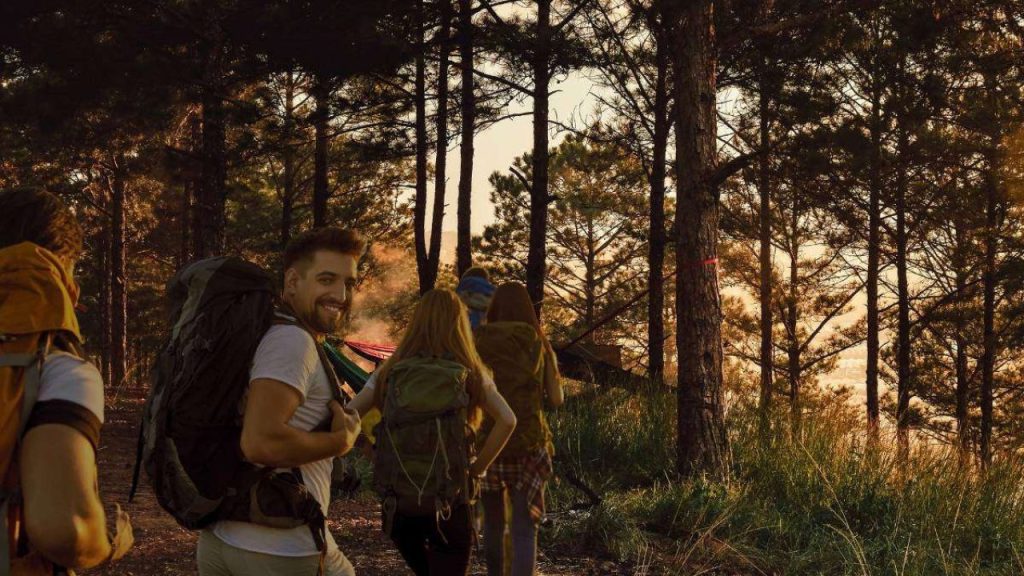In the realm of therapeutic wilderness programs, Trails Carolina Horror Stories stands as a prominent figure, offering hope and healing to troubled youth and their families. However, beneath its picturesque wilderness settings and promises of transformation lie whispers of horror stories and allegations of abuse. Let’s delve deeper into the shadows cast over Trails Carolina Horror Stories and explore the tales that have stirred concern and raised questions about its practices, safety standards, and the well-being of its participants.
Wilderness Therapy A Beacon of Hope or a House of Horrors?
The Promise of Transformation
Trails Carolina Horror Stories, like many wilderness therapy programs, advertises itself as a place of healing and growth for struggling adolescents. Participants are immersed in nature, away from the distractions and pressures of modern life, and guided through therapy sessions, outdoor activities, and communal living experiences. Families are drawn to these programs in hopes of seeing their loved ones emerge stronger, more resilient, and better equipped to navigate life’s challenges.
Concerns and Allegations
However, behind this facade of transformation, there lurk tales of neglect, abuse, and trauma. Families who entrusted Trails Carolina Horror Stories with the care of their children have come forward with harrowing accounts of mistreatment and questionable practices. Allegations range from emotional and psychological abuse to physical neglect and even instances of sexual misconduct. These stories paint a disturbing picture of an industry plagued by systemic issues and a lack of oversight.
Shedding Light on the Dark Side
Investigations and Oversight
In recent years, Trails Carolina Horror Stories has faced increased scrutiny as allegations of abuse and misconduct have surfaced. Concerned families, former participants, and advocacy groups have called for thorough investigations into the program’s practices and the safety of its participants. Regulatory bodies and industry watchdogs have also been urged to step up oversight and hold wilderness therapy programs accountable for their actions.
Unraveling the Trails Carolina Horror Stories
One such investigation into Trails Carolina Horror Stories practices was documented in a compelling film series that shed light on the experiences of former participants and their families. Through firsthand accounts and expert analysis, the series exposed the dark underbelly of the program and raised important questions about the ethical and legal standards upheld within the industry.
The Human Cost Impact on Participants and Families

Trauma and Betrayal
For the individuals who have endured abuse and mistreatment at the hands of Trails Carolina Horror Stories staff, the scars run deep. What was meant to be a journey of healing and growth turned into a nightmare of trauma and betrayal. Many participants struggle with trust issues, PTSD, and other mental health challenges long after leaving the program, while their families grapple with feelings of guilt and helplessness for having unknowingly placed their loved ones in harm’s way.
Seeking Justice and Closure
In the aftermath of these Trails Carolina Horror Stories, many are left wondering: How can justice be served, and how can healing begin? Legal avenues may offer some recourse for those seeking accountability and restitution, but true closure often proves elusive. As the voices of survivors grow louder and calls for reform echo across the wilderness therapy industry, there is hope that meaningful change will be brought about to prevent such tragedies from occurring in the future.
Towards a Safer and More Ethical Future
Raising Standards
As the spotlight shines on Trails Carolina Horror Stories and similar programs, there is a pressing need to raise the standards of care and accountability within the wilderness therapy industry. This entails implementing rigorous training protocols for staff, establishing clear guidelines for participant safety and well-being, and fostering a culture of transparency and trust.
Empowering Families
Families considering enrolling their loved ones in wilderness therapy programs must be equipped with the knowledge and resources to make informed decisions. This includes conducting thorough research, asking critical questions about program practices and safety measures, and staying vigilant for any signs of abuse or neglect. By empowering families to advocate for the best interests of their children, we can help prevent future horror stories from unfolding.
Conclusion A Call to Action
In the realm of wilderness therapy, the allure of transformation often masks the reality of trauma and abuse. Trails Carolina horror stories serve as a stark reminder of the dangers that lurk beneath the surface of these programs. It is incumbent upon us as a society to heed these tales, amplify the voices of survivors, and work towards a future where all participants are treated with dignity, respect, and compassion. Only then can we truly honor the promise of healing and growth that wilderness therapy programs purport to offer.
FAQs
Q: What is Trails Carolina?
A: Trails Carolina is a wilderness therapy program located in North Carolina that aims to provide therapeutic intervention for struggling adolescents through outdoor activities and therapy sessions in a wilderness setting.
Q: What are some of the concerns surrounding Trails Carolina?
A: Concerns surrounding Trails Carolina include allegations of abuse, mistreatment, and neglect of participants enrolled in the program. Families and former participants have raised questions about the safety standards, practices, and oversight within the program.
Q: What types of abuse have been reported at Trails Carolina?
A: Allegations of abuse at Trails Carolina range from emotional and psychological mistreatment to physical neglect and instances of sexual misconduct. These allegations have sparked investigations and calls for greater accountability within the wilderness therapy industry.
Q: How can I ensure the safety of my loved one if considering Trails Carolina?
A: If considering Trails Carolina or any wilderness therapy program, it’s essential to conduct thorough research, ask questions about the program’s practices and safety measures, and stay vigilant for any signs of abuse or neglect. Additionally, reaching out to advocacy groups and regulatory bodies for guidance can help ensure the well-being of participants.
Q: What should I do if I suspect abuse or mistreatment at Trails Carolina?
A: If you suspect abuse or mistreatment at Trails Carolina or any wilderness therapy program, it’s crucial to report your concerns to the appropriate authorities, such as regulatory agencies, law enforcement, or child protective services. Additionally, seeking support from advocacy groups and legal counsel can help navigate the process of addressing these concerns effectively.



